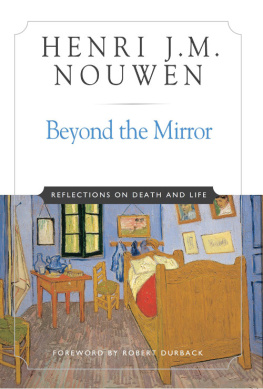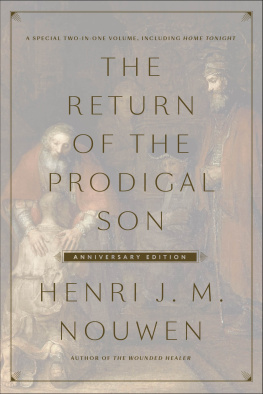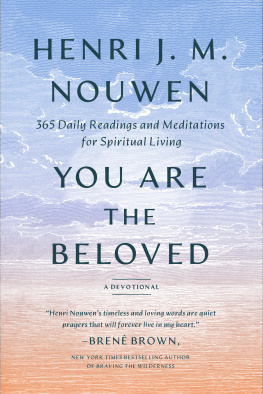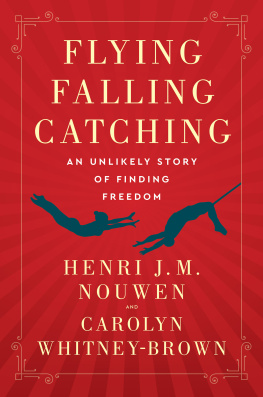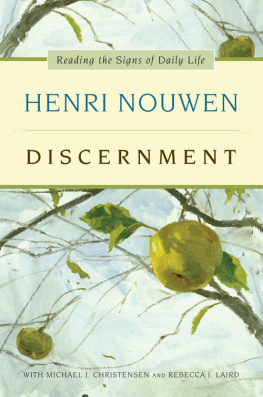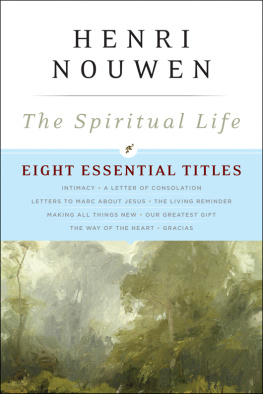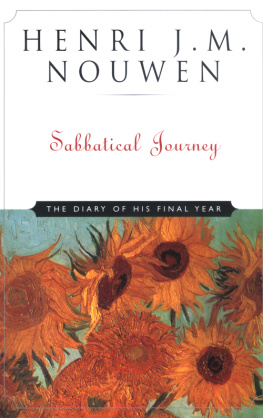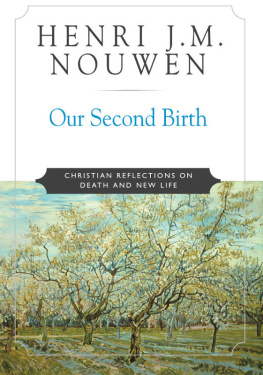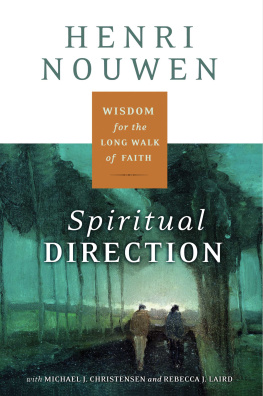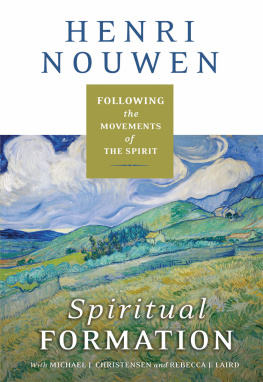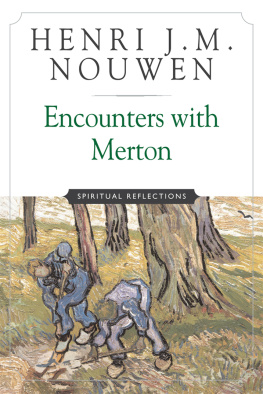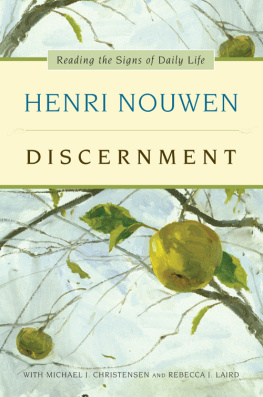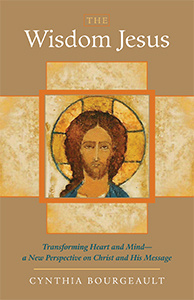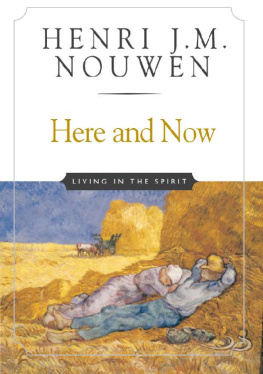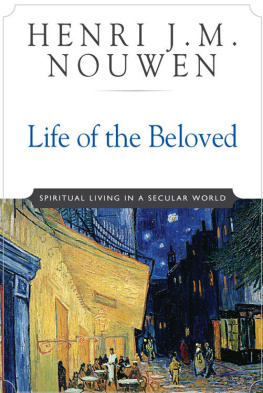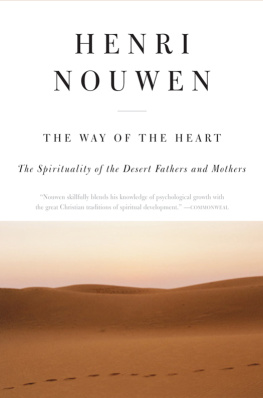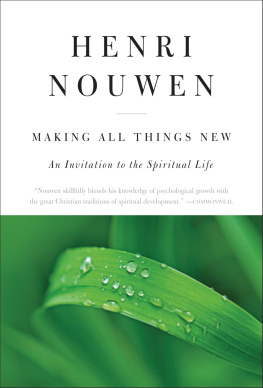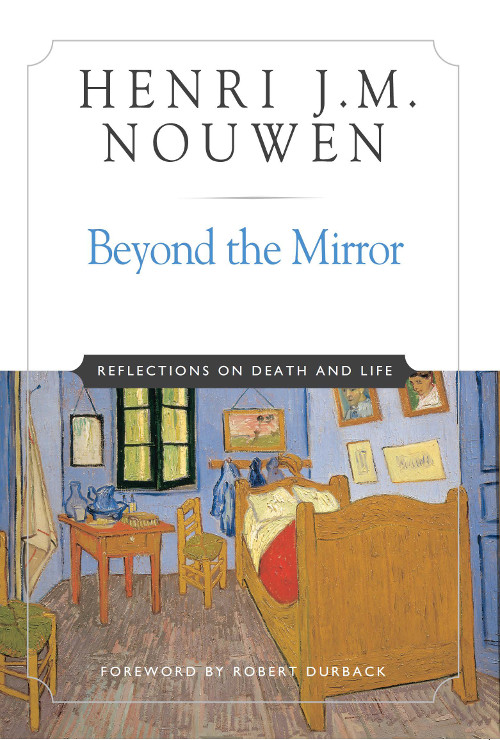This story could never have been published without the generous support and secretarial help of Connie Ellis and the dedicated editorial assistance of Conrad Wieczorek and Phil Zaeder. To the three of them I want to express my deep gratitude.
There is something enchanting about mirrors. Storytellers understand their power to capture the imagination of children, to lead them into the realm of mystery. We gaze into mirrors to see what we look like, to discover who we are. The brothers Grimm understood this. The queen in Snow White consults with her mirror to seek reinforcement of her self-image: Mirror, mirror, on the wall, who is the fairest one of all? When the queen does not get the answer she wants, in a fit of rage she lets go of what beauty she has and exchanges it instead for the ghastly features of an ugly old witch. The story invites us to ponder before our own looking glasses.
The special appeal of Henri Nouwen has been his consistency in his writings in offering himself as a foil, holding up to his readers his own lived experience as a reflecting glass, as it were, into which we can gaze and probe the deeper dimensions of who we are, a mirror into which we can look and discover ourselves anew, both in our vulnerabilities, but also in our hidden potential, our true destinies.
In Beyond the Mirror Nouwen gives us an account of an accident in which he was seriously injured when struck by the outside rearview mirror of a passing van as he was hitchhiking on a dark winter morning laden with heavy snow and ice along the roadside. More importantly, the book gives us an account of his reflections as he found himself close to death and awaiting surgery in the emergency room of a hospital in Toronto, and his subsequent thoughts on the experience in the days following his recovery.
Face to face with death, Nouwen had to sort out what was really important about the life he had lived and the small slice of life left to him now, as he faced the possibility of imminent death. As the reader follows Nouwen step by step through the logic of negotiating with death, the reader, too, is inevitably drawn into the process of sorting out ultimate values, weighing decisions in the present about what really matters, not waiting for the moment when time runs out and new decisions are no longer an option.
Ordinarily death is a subject we do not find particularly inviting. We would rather avoid it altogether, lest it cast a shadow on our lives. In this new edition of Beyond the Mirror, however, Nouwen shows us how the awareness of our mortality can in fact enrich our lives. The very fact of the shortness of our lives reminds us of how precious every moment is. Few of us are so well off financially that we can afford to throw our spare money away. If we would stop to think about it, neither can any of us afford to throw the spare years of our lives away, rationed out to us, as they are, only day by day and moment by moment.
For Nouwen death itself became a mirror that brought him face to face with the question: Who am I? Over a lifetime we acquire many identities: I am what I do. I am what I have. I am a mother. I am a father. I am single and lonely. I am a sales clerk. I am a marketing analyst. Im an artist. Im unemployed. Sadly, so many might be inclined to say: Im a nobody.
Nouwen, as he lay dying in the hospital, could have said to himself: Im a theologian, Im a psychologist, Ive taught at Yale and Harvard, Ive written many books, Ive lectured nationally and internationally. But these were not the thoughts that brought him comfort in what he perceived to be his final hour. Death strips away the many superficial layers of identity we wear.
Which of his many identities brought Nouwen comfort as he lay suspended between life and death? What sense of self finally trumped all other cards in his life? As he peers into the mirror of his life to search for the definitive answer to the question Who am I? he hears these words spoken directly to him: This is my beloved Son, with whom I am well pleased (Matthew 3:17). Nouwen hears these words not spoken to Jesus alone, but to himself and to all humanity represented in Jesus: I know now, he says, that the words spoken to Jesus when he was baptized are words spoken also to me and to all who are brothers and sisters of Jesus.
He concludes: My tendencies toward self-rejection and self-depreciation make it hard to hear these words truly and let them descend into the center of my heart. But once I have received these words fully, I am set free from my compulsion to prove myself to the world and can live in it without belonging to it. Once I have accepted the truth that I am Gods beloved child, unconditionally loved, I can be sent into the world to speak and to act as Jesus did.... I am convinced that I will truly be able to love the world when I fully believe that I am loved far beyond its boundaries.
By sharing with his readers in this intensely personal account the full sweep of his own self-understanding in the face of death, Nouwen frees the rest of us from the very constricted, narrow, false identities we craft for ourselves, abetted by the media and its flood of hollow advertising. Led by Nouwen, we can walk through our mirrors into the real world of our true selfhood, designed by a loving God and destined for a future beyond our imagining.
R OBERT D URBACK
This little book is a spiritual story about an accident, one that I suffered myself. I have written it because I had no choice. My accident brought me to the portal of death and led me to a new experience of God. Not writing about it would have been unfaithful to my vocation to proclaim the presence of God at all times and in all places. Books and articles have been important in my search for God, but it has been the interruptions to my everyday life that have most revealed to me the divine mystery of which I am a part.

